If you are beginning the process of searching for the most affordable bachelor’s degree in Illinois, you have come to the right place. Those who live in the Prairie State enjoy a unique blend of urban city buzz and rural Midwestern calm, with Chicago emanating as a metropolitan light in a state associated with agricultural productivity. In terms of higher education, students pursuing a bachelor’s degree in Illinois are never far from activities for any interest, whether it is a thrilling camping adventure in the woods, a concert held in a downtown Chicago venue, or an internship in Springfield. Academic options are just as diverse, and Illinois is home to liberal arts colleges, community colleges, and both private and public four-year and graduate universities.
However, academic diversity and opportunities for a unique and well-rounded student life are meaningless if the programs you are considering are not financially accessible. Although a number of schools on this list offer generous financial aid awards through grants, loans, and scholarships, cost remains an important factor for many students, regardless of the specific path they are pursuing. For this reason, we decided to compile a list of the most affordable bachelor’s degrees in Illinois based on indicators that prospective students often use to identify top colleges and universities such as the cost of attendance, graduation rates, and student-to-faculty ratios.
Methodology
Our goal was to capture the balance between quality and affordability in order to identify the top institutions of higher learning in Illinois. After all, the process of conducting research and narrowing down the hundreds of programs and schools in the state can be overwhelming, not to mention time-consuming, especially if you are not entirely sure of your professional goals. To gather a list of schools, we conducted a search for the term “colleges in Illinois” using the College Navigator tool at the National Center for Education Statistics (NCES). We then scored these schools based on three core metrics related to the size of classes, the degree of student satisfaction, and affordability as outlined below. We also cross-referenced the data we retrieved with each school’s website to ensure that our list would contain accurate and current information.
Average Cost of Attendance
The average cost of attendance is arguably one of the most important factors to consider when researching prospective programs. In fact, it might be the first thing you do as you begin your search, mainly because you want to make sure you can afford to attend before you spend time considering other aspects of the program such as majors, extracurricular offerings, and faculty qualifications. As important as tuition is, however, keep in mind that it does not always speak to the quality of a school or program. In other words, prestigious private colleges with astronomical tuition rates might not offer a high-quality academic experience, while public state universities with lower attendance costs offer everything you need or more. For the purpose of this list, we ranked tuition based on how much it would cost for an in-state student to complete 15 hours of study per semester for one full year. Out-of-state tuition rates are listed as well, though they were not used as a basis for awarding points.
Points:
Under $7,500: 3 points
$7,500 to $15,000: 2 points
$15,001 and above: 1 point
Student-to-Faculty Ratio
In addition to researching the total enrollment numbers for the colleges and universities you are considering attending, you may also want to look at student-to-faculty ratios to get a better understanding of the size of the classes at these schools. Although there are pros and cons to both large universities and small colleges, schools with low student-to-faculty ratios may be more likely to offer smaller classes, opportunities for individualized studies or research with faculty members, mentoring or advising services, and the chance to develop close relationships with peers and professors. Although every student’s academic background and personal priorities will differ, we determined that schools with the lowest student-to-faculty ratios would earn the most points.
Points:
10:1 or less: 3 points
11:1 to 15:1: 2 points
Greater than 15:1: 1 point
Graduation Rate
Finally, we looked at each school’s graduation rate as a measure of student satisfaction. After all, your goal is to find a program that meets your academic needs and professional goals, complete the program’s course requirements, and graduate with a degree in your chosen field. Although admission rates can help to determine the school’s selectivity and the chance of being accepted to a program, graduation rates tell us how many students actually completed the program and earned a degree, which is an important piece of information to know before you commit time and money to a school. Typically, we can conclude that institutions with high graduation rates and, therefore, high levels of student satisfaction provided affordable programs, academic support, and experienced professors to help students reach their goals. For this reason, we determined that schools with high graduation rates would earn the greatest number of points based on the following ranges.
Points
More than 50 percent: 3 points
Between 30 percent and 50 percent: 2 points
Less than 30 percent: 1 point
Ranking Top 20 Best Affordable Bachelor’s Degree Colleges in Illinois
20. Aurora University
Aurora, Illinois
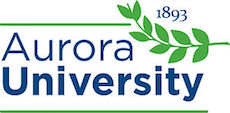
Points: 5
School Website
Established in 1893, Aurora University is a private university in Aurora, Illinois that also offers programs in Woodstock, Illinois and Williams Bay, Wisconsin as well as online. More than 5,800 students enroll in affordable undergraduate and graduate degrees in fields of study such as business and public policy, education and human performance, liberal arts, nursing, science and engineering, and social work. With more than 40 majors and minors to choose from, students not only have the flexibility to choose a program to meet their professional goals, but they also enjoy a vibrant student life through four alternative spring break trips each year and three annual major theater productions. The school is also home to an 80-acre multi-sport complex that features high-quality competition and practice facilities.
In-State Tuition: $24,260
Out-of-State Tuition: $24,260
Student-to-Faculty Ratio: 18:1
Graduation Rate: 53 percent
19. Blackburn College
Carlinville, Illinois

Points: 5
School Website
Blackburn College in Carlinville, Illinois was established in 1837 and provides the nation’s only student-managed work program. Affiliated with the Presbyterian Church, Blackburn requires all on-campus students to work while they pursue their education and offers a tuition discount based on the hours worked. The program fosters personal enrichment, growth, and a unique approach to on-the-job skill-building, providing unmatched career training unlike any other college or university. Students may choose from more than 40 cheap Bachelor of Arts degrees as well as pre-professional programs in theology, nursing, and law. Blackburn does not confer Bachelor of Science programs or graduate degrees. Popular majors include psychology, human resource development, and organizational leadership.
In-State Tuition: $22,410
Out-of-State Tuition: $22,410
Student-to-Faculty Ratio: 11:1
Graduation Rate: 48 percent
18. Lincoln College
Lincoln, Illinois

Points: 5
School Website
Located in Lincoln, Illinois, Lincoln College is a private, liberal arts college that also operates an extension site in Normal. Lincoln confers both two- and four-year degrees, and students can choose from popular affordable majors in business management, community and human services, contemporary jazz studies, organizational leadership, and sport management, among others. Lincoln also offers an Accelerated Bridge to Education program that provides bachelor’s degrees for adult learners through a combination of online and on-campus courses. Several current degree offerings in the ABE program include organizational leadership, supply chain and logistics, health services administration, entrepreneurship, criminal justice studies, and business management.
In-State Tuition: $18,600
Out-of-State Tuition: $18,600
Student-to-Faculty Ratio: 14:1
Graduation Rate: 31 percent
17. University of Illinois at Urbana-Champaign
Champaign, Illinois
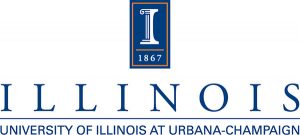
Points: 5
School Website
Nestled in the twin cities of Urbana and Champaign, the University of Illinois at Urbana-Champaign is a public land-grant research university and the flagship institution of the University of Illinois System. The school is comprised of 16 instructional units and colleges, including one of the top five engineering schools in the world, that provide more than 150 cheap undergraduate programs and more than 100 professional and graduate programs. More than 44,000 students enroll at UIUC each year, pursuing both on-campus and online degrees, and extracurricular options include more than 1,000 registered student organizations. UIUC boasts an incredible 85 percent graduation rate and low net price for in-state students as well as a flourishing research program and faculty members that include Pulitzer Prize winners and Nobel laureates.
In-State Tuition: $15,094
Out-of-State Tuition: $31,664
Student-to-Faculty Ratio: 20:1
Graduation Rate: 85 percent
16. Northern Illinois University
DeKalb, Illinois
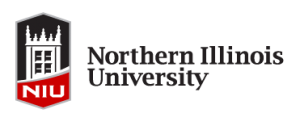
Points: 5
School Website
Founded as Northern Illinois State Normal School in 1895, Northern Illinois University is a public research university in DeKalb, Illinois. NIU is comprised of 42 departments and schools within seven colleges that provide students with high-quality, rigorous learning opportunities. Offering more than 100 low cost bachelor’s programs to more than 13,000 undergraduate students, NIU also awarded scholarships to more than 4,200 students totaling $14 million for the 2016-2017 academic year. In addition to popular majors in communications, psychology, accounting, nursing, health service preparatory studies, and physical education teaching and coaching, NIU provides minors and certificates, accelerated and integrated programs, and pre-professional studies. NIU also offers study abroad programs located in 75 different countries.
In-State Tuition: $14,617
Out-of-State Tuition: $14,617
Student-to-Faculty Ratio: 16:1
Graduation Rate: 45 percent
15. Governors State University
University Park, Illinois

Points: 5
School Website
Located in University Park, Illinois about 30 miles south of Chicago, Governors State University is a comprehensive public university that offers cheap degree programs at the undergraduate and graduate levels. Comprised of a College of Health and Human Services, College of Education, College of Business, and College of Arts and Sciences, GSU enrolls more than 5,700 students each year. Degree options at the bachelor’s level include business administration, gender and sexuality studies, theater and performance studies, health administration, and manufacturing management. GSU also offers a dual degree through a partnership with several Illinois-based community colleges, allowing students to transfer credits to GSU and earn their bachelor’s degree quicker. GSU’s Civic Engagement and Community Service Center provides opportunities for students to participate in community service and service learning projects.
In-State Tuition: $12,196
Out-of-State Tuition: $21,586
Student-to-Faculty Ratio: 10:1
Graduation Rate: N/A
14. Southern Illinois University-Edwardsville
Edwardsville, Illinois

Points: 5
School Website
Located in Edwardsville, Illinois, Southern Illinois University-Edwardsville is a public doctoral university that was initially established as an extension of Southern Illinois University-Carbondale in 1957. SIUE is one of two institutions that make up the Southern Illinois University System and considered a master’s college due to the number of graduate degree programs it offers. However, it also provides a number of inexpensive undergraduate degrees in majors such as applied communication studies, business administration, biological sciences, engineering, construction management, nursing, and education, to name a few. SIUE hosts a number of events to help students connect to post-college employment opportunities.
In-State Tuition: $12,132
Out-of-State Tuition: $12,132
Student-to-Faculty Ratio: 19:1
Graduation Rate: 49 percent
13. St. Augustine College
Chicago, Illinois
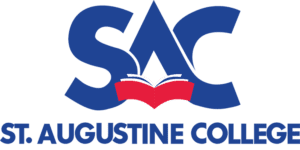
Points: 5
School Website
St. Augustine College is a private Episcopal college located in Chicago, Illinois and one of the first bilingual postsecondary institutions in the state. Founded in 1980, the school enrolls 1,500 students each year and provides 18 cheap degrees at the associate and bachelor’s levels. Students may choose to complete a Bachelor of Social Work, a Bachelor of Science in Computer Information Systems, or a Bachelor of Arts in three majors: hospitality management, psychology, or business administration. The school offers flexible schedules, affordable tuition, and open admissions, and the 16:1 student-to-faculty ratio allows students to be part of small classes in which they can thrive and receive the personal attention they need to meet their academic and professional goals.
In-State Tuition: $11,400
Out-of-State Tuition: $11,400
Student-to-Faculty Ratio: 16:1
Graduation Rate: 39 percent
12. National Louis University
Chicago, Illinois
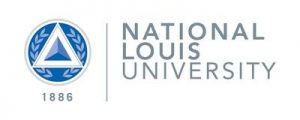
Points: 5
School Website
National Louis University is a private university that operates a main campus in Chicago, Illinois as well as locations throughout the region and in Florida and Poland. Since its founding in 1886, the school has played a role in several historic initiatives as it helped to found both the National Parent Teacher Association (PTA) and the National Kindergarten Movement. Today, the school offers more than 60 affordable programs at the bachelor’s, master’s, and doctoral levels, including degrees in business and management, communications, teaching, health and human services, and the social and behavioral sciences. Known for promoting the importance of professional and academic training in early childhood education practice and theory, NLU offers both on-campus and online programs to students seeking a flexible academic experience.
In-State Tuition: $10,710
Out-of-State Tuition: $10,710
Student-to-Faculty Ratio: 17:1
Graduation Rate: 50 percent
11. Methodist College
Peoria, Illinois
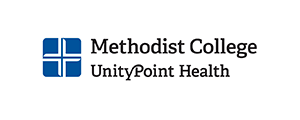
Points: 6
School Website
Founded in 1900 as a nursing school, Methodist College in Peoria, Illinois has grown into one of the top healthcare institutions of higher learning in the state, offering cheap bachelor’s and master’s degrees in nursing education, nursing, social work, health science, and healthcare administration. Professional certificate programs are also available in nursing assistant, medical assistant, and gerontology. The educational process includes the school’s Simulation Center and Clinical Practice Center, which provides hands-on technology simulations that mirror healthcare and nursing practices and allow students to gain hands-on, real-world clinical experience in a supervised, controlled environment. In addition to completing required clinical sessions, students also have the opportunity to participate in group-directed practices to gain additional experience.
In-State Tuition: $20,750
Out-of-State Tuition: $20,750
Student-to-Faculty Ratio: 8:1
Graduation Rate: 42 percent
10. Southern Illinois University-Carbondale
Carbondale, Illinois
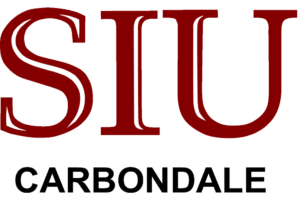
Points: 6
School Website
Founded in 1869, Southern Illinois University-Carbondale is a public research university in Carbondale, Illinois and the oldest campus in the Southern Illinois University System. Ranked among the top 5 percent of all U.S. institutions of higher learning for research, SIU Carbondale enrolls students from more than 100 countries and all 50 states, providing more than 300 low cost associate, bachelor’s, master’s, and doctoral degrees as well as 11 professional degrees in medicine, law, and architecture, to name a few. The most popular majors at SIU Carbondale include education, manufacturing engineering, healthcare management, aviation management and operations, criminology, psychology, and accounting. At SIU Carbondale, the average student-to-faculty ratio is 14:1, and 59 percent of classes have 19 or fewer students.
In-State Tuition: $14,704
Out-of-State Tuition: $29,160
Student-to-Faculty Ratio: 14:1
Graduation Rate: 40 percent
9. Illinois State University
Normal, Illinois

Points: 6
School Website
Established in 1857 as Illinois State Normal University, Illinois State University is located in Normal, Illinois and is known for being the oldest public university in the state. ISU emphasizes teaching, and it is recognized as one of the top 10 largest producers of teachers in the nation. ISU offers more than 160 affordable undergraduate degree options through its College of Applied Science and Technology, College of Arts and Sciences, College of Business, College of Education, College of Fine Arts, and the Mennonite College of Nursing. Students can choose from undergraduate majors in a wide range of disciplines, from finance to agriculture to information technology as well as cutting-edge degrees in interactive media, web application development, engineering physics and crop and soil science. Despite the school’s growing size, now enrolling more than 21,000 students, the school maintains a 69% graduation rate.
In-State Tuition: $14,516
Out-of-State Tuition: $26,040
Student-to-Faculty Ratio: 18:1
Graduation Rate: 69 percent
8. University of Illinois at Chicago
Chicago, Illinois

Points: 6
School Website
The University of Illinois at Chicago is a public research university located in Chicago, Illinois and the largest university in the Chicago area by enrollment, providing cheap degrees to more than 30,000 students, including more than 16,000 undergraduates, across its 15 colleges. UIC Is also home to the largest medical school in the U.S. and is ranked among the top 50 institutions of higher education for research in the U.S. Students can choose from more than 125 undergraduate and graduate degrees ranging from urban and public affairs, architecture, education, the life sciences, the arts, and more. New options include a Bachelor of Science in Integrated Health Studies and a Bachelor of Arts in Integrated Design as well as joint undergraduate and graduate degrees in public policy/public administration and urban studies/urban planning.
In-State Tuition: $13,764
Out-of-State Tuition: $26,980
Student-to-Faculty Ratio: 19:1
Graduation Rate: 57 percent
7. Moody Bible Institute
Chicago, Illinois

Points: 6
School Website
With an undergraduate main campus in Chicago, Illinois, Moody Bible Institute is a Christian institution of higher education that enrolls more than 3,100 students each year. Most of the academic programs offered at MBC are focused around religion, including topics such as evangelism, youth ministries, and biblical language. Students seeking a more secular degree can pursue inexpensive majors in aviation, elementary education, linguistics, and communications. Campus groups are also organized around matters related to spirituality, and students have the opportunity to participate in gospel choirs, ministry groups, and extracurricular fellowships. The school reports a student-to-faculty ratio of 18:1 as well as a 90 percent graduate job placement rate.
In-State Tuition: $13,056
Out-of-State Tuition: $13,056
Student-to-Faculty Ratio: 18:1
Graduation Rate: 59 percent
6. Western Illinois University
Macomb, Illinois
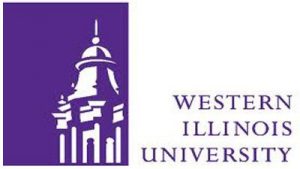
Points: 6
School Website
Western Illinois University was founded as Western Illinois State Normal School in 1899, focused on educating just over 200 students for careers as teachers. Since then, the school has grown to become an 11,000-student powerhouse that offers affordable undergraduate academic programs spanning nearly 70 subject areas. Students may pursue unique bachelor’s degrees in a number of disciplines of study, including forensic chemistry, meteorology, textile and apparel merchandising, and agriculture. Students may participate in WIU’s NCAA Division I sports teams as well as more than 250 organizations and campus clubs. Students also benefit from academic advising services which help them with career counseling, changing majors, alternative admissions, and major and course selections.
In-State Tuition: $12,951
Out-of-State Tuition: $12,951
Student-to-Faculty Ratio: 14:1
Graduation Rate: 50 percent
5. University of Illinois at Springfield
Springfield, Illinois
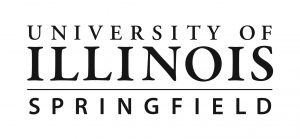
Points: 6
School Website
Established in 1969 as Sangamon State University, the University of Illinois at Springfield became the newest member institution of the University of Illinois System in 1995. As a public land-grant, liberal arts college, the university serves more than 4,500 students in cheap undergraduate and graduate degree programs through its four colleges. Students can major in a variety of disciplines, including biochemistry, visual arts, and public policy. The school’s unique astronomy/physics program explores current trends and issues through multidisciplinary courses, real-world learning experiences and conferences, and other popular undergraduate programs include psychology, computer science, and business administration.
In-State Tuition: $11,813
Out-of-State Tuition: $21,338
Student-to-Faculty Ratio: 13:1
Graduation Rate: 50 percent
4. Chicago State University
Chicago, Illinois
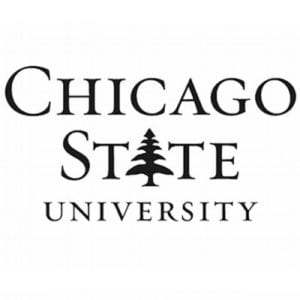
Points: 6
School Website
Chicago State University is a university with a campus in Chicago, Illinois and a member-school of the Thurgood Marshall College Fund. Founded as the Cook County Normal School in 1867, CSU was initially an innovative teachers’ college but grew into an impressive postsecondary institution enrolling more than 7,000 students. The school is comprised of a College of Pharmacy, College of Health Sciences, College of Education, College of Business, and College of Arts & Sciences as well as an Honors College. Offering both on-campus and online degrees, CSU’s most popular majors include business, psychology, criminal justice and safety studies, and the liberal arts and humanities. Students are encouraged to participate in the school’s extracurricular offerings, including student-run organizations, the Upward Bound leadership program, and the African-American Male Resource Center.
In-State Tuition: $10,163
Out-of-State Tuition: $17,123
Student-to-Faculty Ratio: 10:1
Graduation Rate: 13 percent
3. Removed by editor.
2. Lincoln Christian University
Lincoln, Illinois

Points: 7
School Website
Lincoln Christian University is a private Christian university located in Lincoln, Illinois. LCU provides residential, four-year undergraduate and graduate degrees as well as continuing education programs online. The school’s 12 cheap bachelor’s degrees focus on business administration, youth and family ministry, intercultural studies, religious matters, including preaching ministry, children’s ministry, and biblical studies. Enrolling nearly 1,000 students with a student-to-faculty ratio of 14:1, LCU offers opportunities for students to form personal relationships with peers and professors. Student activities include LCU Sings Out, an American Idol-styled singing event, and FOCUS, a student-led, weekly worship session as well as intramural sports.
In-State Tuition: $13,200
Out-of-State Tuition: $13,200
Student-to-Faculty Ratio: 12:1
Graduation Rate: 67 percent
1. Eastern Illinois University
Charleston, Illinois
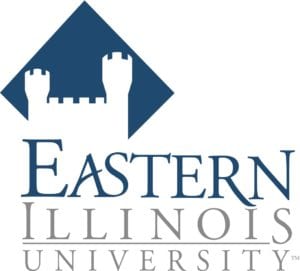
Points: 7
School Website
Established as Eastern Illinois State Normal School in 1895, Eastern Illinois University has grown from a teacher’s college offering two-year degrees to a comprehensive university offering affordable bachelor’s and master’s programs in the humanities, the arts and sciences, business, and education. With 50 undergraduate degrees that include 36 graduate programs of study and more than 150 major and minor options, including online learning opportunities, students have the opportunity to prepare for the career and life path they are pursuing. The school is comprised of four colleges, the School of Continuing Education, and the Graduate School, and EIU provides more than 150 registered student organizations as well as a daily newspaper and student government.
In-State Tuition: $11,803
Out-of-State Tuition: $14,023
Student-to-Faculty Ratio: 14:1
Graduation Rate: 56 percent
Frequently Asked Questions
What Are the Most In-Demand Careers in Illinois for Graduates With a Bachelor’s Degree?
Unemployment in Chicago is at its lowest rate in more than 10 years, and there are more than 194,300 open positions in the state. This means that recent college graduates and seasoned workers with in-demand skills can easily find a new career and, in some cases, earn a raise while doing so. Although most of the in-demand careers in Illinois are in the health professions, including surgeons, podiatrists, physicians, and psychiatrists, there are a number of occupations that one can seek with just a bachelor’s degree or an undergraduate degree and additional hands-on training. Some of the most in-demand careers in the state include:
- Native Mobile Developers
- Machine Learning Engineers and Developers
- Java and Javascript Developers
- Respiratory Therapists
- Clinical Research Associates
- Financial Analysts
- Data Analysts
- Food Scientists
- Project Developers and Managers
- Development Directors
We can also look at the fastest-growing careers in Illinois to get a better sense of where the economy is going both in the next several years as well as in the long run. These occupations include operations research analysts, web developers, software developers for applications, and home health aides as well as occupational therapy aides, veterinary technologists and technicians, and nurse practitioners. Other occupations increasing at a rapid rate include computer systems analysts, occupational therapy assistants, and systems software developers.
As we can see, the hot sectors for Illinois in 2019 include technology, healthcare, finance, manufacturing and clean energy, and nonprofits and professional services, and students may pursue many entry-level positions in these industries with a bachelor’s degree from an accredited university or college in Illinois. Although the unemployment rate was 4.4 in March 2019, slightly higher than the national average of 3.8 percent, the number of available jobs indicates steady employment opportunities for graduates with a bachelor’s degree.
What Are the Highest-Paying Jobs in Illinois?
The U.S. Bureau of Labor Statistics (BLS) is a useful resource for determining the highest-paying jobs in Illinois, regardless of whether you know exactly the career you would like to pursue or you are still considering your options. According to the BLS, the annual mean wage across all occupations in Illinois was $53,790 as of May 2018. The top five highest-paying occupations are those in the medical field, with anesthesiologists coming in at number one with an annual yearly salary of $261,300, followed closely by psychiatrists, who earned $251,390, and surgeons, who brought home $243,350. Chief executives and family and general practitioners rounded out the top five, earning $230,070 and $213,340, respectively. Although there are other jobs available in the medical field that report high salaries above $200,000, for the purpose of this article, we wanted to focus on occupations outside of those that require a medical degree. Although a bachelor’s can be used as a stepping stone and a requirement for medical school, other high-paying jobs in Illinois that one can pursue with additional training and experience include:
- Postsecondary Law Teachers: $152,980
- Financial Managers: $144,680
- Computer and Information Systems Managers: $143,900
- Air Traffic Controllers: $136,390
- Architectural and Engineering Managers: $136,270
- Petroleum Engineers: $131,510
- Sales Managers: $131,400
- Marketing Managers: $130,110
- Postsecondary Economics Teachers: $128,340
- Personal Financial Advisors: $126,470
- General and Operations Managers: $125,990
- Advertising and Promotions Managers: $123,390
- Medical and Health Services Managers: $121,900
What Are the Best Schools in Illinois for Bachelor’s Recipients?
Pursuing a degree in the Prairie State is beneficial not only because of the high earning potential associated with its colleges and universities but also due to the number of opportunities in Chicago, where many of the most affordable bachelor’s degree colleges in Illinois are located. We compiled a list of the top five institutions of higher learning that we detailed above in order to provide salary information related to early career pay, mid-career pay, and 20-year net returns on investment, or the amount you can expect to earn in the 20 years after graduating, for your reference, according to PayScale. If you are considering a bachelor’s in Illinois, it is important to consider not only the average cost of attendance for the degree itself but also how much you will gain from your investment both in the short-term and in the long run. Below, we ranked these five schools in order from highest ROI to lowest ROI figures for on-campus bachelor’s degrees that in-state students earn without financial aid.
- 1. University of Illinois at Urbana-Champaign
– 20-Year Net ROI: $585,000
– Early Career Pay: $61,000
– Mid-Career Pay: $113,800 - 2. University of Illinois at Chicago
– 20-Year Net ROI: $419,000
– Early Career Pay: $55,000
– Mid-Career Pay: $102,200 - 3. Northern Illinois University
– 20-Year Net ROI: $336,000
– Early Career Pay: $51,400
– Mid-Career Pay: $94,800 - 4. Southern Illinois University-Edwardsville
– 20-Year Net ROI: $302,000
– Early Career Pay: $49,100
– Mid-Career Pay: $88,300 - 5. Illinois State University
– 20-Year Net ROI: $286,000
– Early Career Pay: $49,700
– Mid-Career Pay: $93,600
Illinois is home to more than 100 four-year colleges, including notable institutions such as the University of Illinois, Northern Illinois University, and Illinois State University as well as top employers in the region such as State Farm, Allstate Insurance, and Abbott Laboratories. Ranking at the top of our list in terms of ROI, the University of Illinois at Urbana-Champaign offers both an impressive $585,000 20-year net ROI as well as the highest mid-career pay for students who graduate with only a bachelor’s degree across all industries and occupations. From large state universities to small private colleges and religious-based institutions of higher learning, there is certainly no shortage of affordable bachelor’s degree colleges in Illinois.
AS Staff
This concludes our ranking of the top 20 most affordable bachelor’s degree colleges in Illinois.
Other Rankings of Interest:
- 10 Most Affordable Online Colleges in Illinois
- 25 Online Bachelor’s Colleges Under $10K Net Price
- 25 Most Affordable Online Bachelor’s in Organizational Leadership
- 25 Most Affordable Online Christian Bachelor’s Colleges
- The 30 Most Affordable Online Bachelor’s-Granting Historically Black Colleges/Universities
- 35 Top Value Affordable Online Bachelor’s Degrees in Psychology
- 35 Top Value Affordable Online Bachelor’s Degrees in Criminal Justice Studies
- 20 Most Affordable Women’s Colleges with Online Master’s Degrees
- 20 Most Affordable Online Master’s-Granting HBCUs

 The Best Colleges
The Best Colleges The Lowest Costs
The Lowest Costs The Highest Returns
The Highest Returns